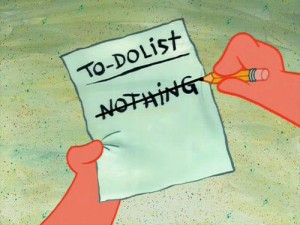
One of the keys to being consistently productive and effectively running a business is organization and the ability to schedule time properly. We all like to think of ourselves as organized, but in reality, is this the truth?
Have you ever found that in spite of your best intentions, you just couldn’t accomplish everything you set out to do in a given day or week? Is it because you’re trying to cram too many things into your days and weeks, or is it because you just need to work on your organization and time management skills? Do you find that you plan a schedule, and then get distracted with so many other things that you can’t finish your work?
Regardless of the reason, it’s vital to get organized! You’re not going to experience Network Marketing success until you can get your time organized. Once you manage this, you will be able to see what areas you need help in and which areas you can maximize.
Even though some of us think that having to be organized stifles creativity, it really makes it much easier to be creative – you’re freer to create the business and life you want (sounds like fun when I put it that way, doesn’t it?).
So let’s talk about time scheduling. First you need some tools. They don’t have to be elaborate or fancy, so don’t worry. You need a calendar (one with space to write things down) and a diary or journal. Once you have the tools you’ll use, you need to commit yourself to truly making use of them. This is how you’re going to begin to get organized and then stay organized.
The first step to learning to properly schedule your time is to see how you’re using your time right now. This is where you will use your diary or journal. For a week, don’t change your schedule. Just keep very close track of what you do with your time. Record what you’re doing in some detail, how you’re feeling (tired, restless, alert, etc), and write down the time you start each new activity – even if it’s just taking a few minutes to chat on the phone with a friend.
After one week, look at your journal. What can you learn from it? That you are spending a lot of time chatting or day dreaming? Maybe you’re spending a lot of time doing things that should be eliminated from your workday. You might be surprised to see how much time you spend on Facebook or checking email.
Look closely to find areas where there is waste. You don’t have to check your email ten times a day! You can easily reduce that amount to three times. And you don’t have to answer every phone call that comes in – in fact, if you’re working, you should eliminate the distraction of the phone – that’s what voice mail is for. Schedule time each day to return calls – and then limit the amount of time you’re on each call if you can!
Next, look at the work tasks that you need to accomplish each day and throughout the week. Make sure to include time for emails and communicating with downline members and potential recruits, along with social networking, marketing activities, etc. Keep in mind that you also need to have time for your personal life, and your “day” job, if you’re still working outside of the home. Oh, and don’t forget that you have to sleep at some point!

The point is to create to-do lists and prioritize them. Certain things will have to take place at certain times. They can fit into your schedule without any more analysis if you’ve deemed them necessary. Now look at what is left. Large tasks can be broken down into smaller ones – this will help you keep from getting overwhelmed.
Now here is where things get interesting! It’s time to schedule your work time, and indeed your whole life to some extent. If you’ve made notes about the times of day that you’re feeling more alert and energized (and you should have), you can start working your schedule to fit those times. You can use higher energy times for doing certain tasks, and you can also use the information you’ve collected to see if some simple rest or dietary changes might help you find more “energy” time during your day.
As you start building your schedule, keep the following in mind:
- Stay realistic – you only have so much time each day.
- Make sure the things that you absolutely must do are scheduled and that you’ve left enough time to complete them.
- Don’t over-commit yourself.
- Remember to expect the unexpected – leave some contingency time in your schedule for surprises.
Once you’ve built your schedule, do two things: remember that a schedule is fluid – it’s going to move and change, and remember that you can always go back to basics if you need to – it won’t hurt to use your diary to track your habits occasionally to make sure you’re staying organized.









